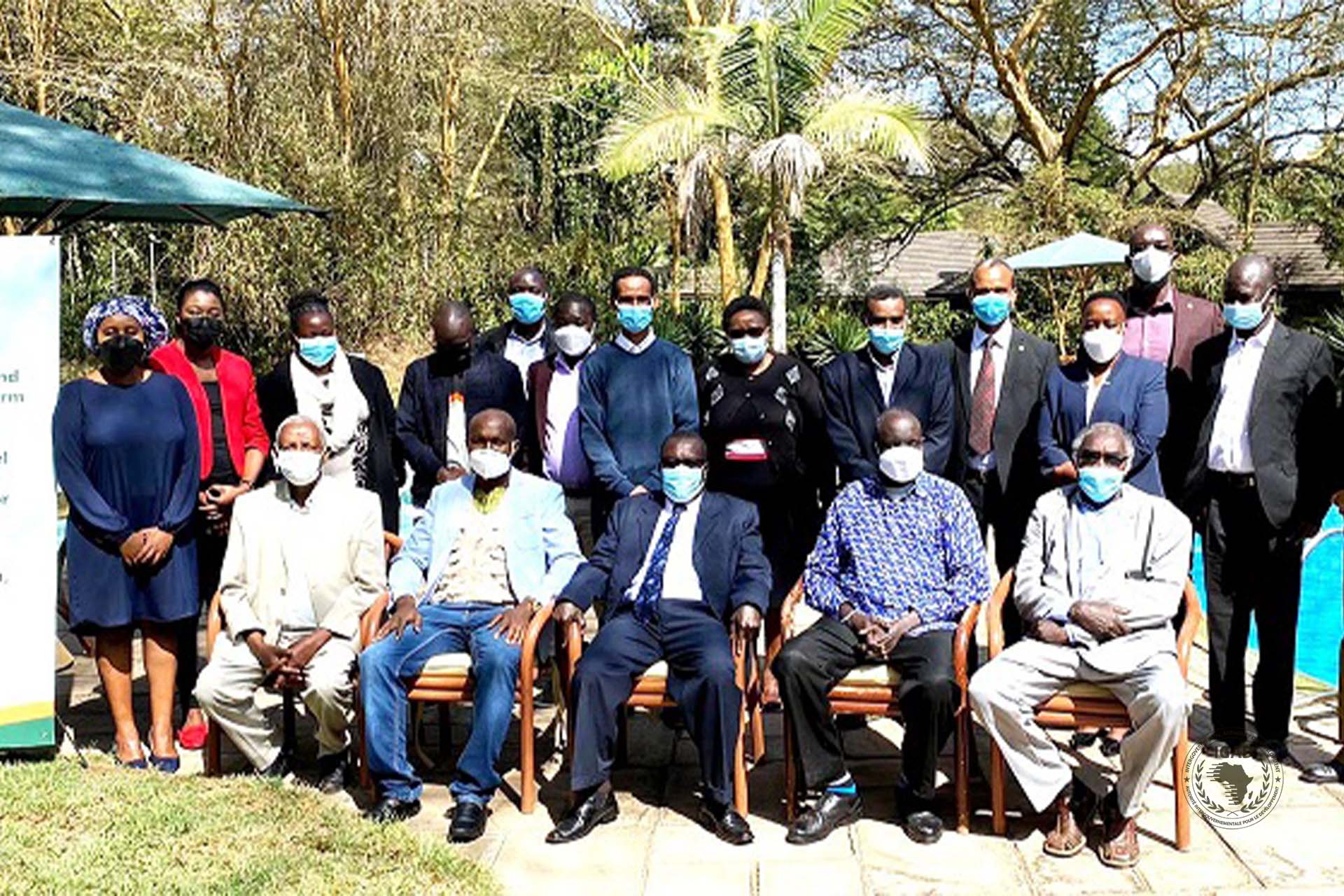19-20th August, 2021 (Naivasha, Kenya): Cognizant of the challenges facing fragile rangeland ecosystems at regional level, the IGAD regional rangeland management strategy framework was put forth as a means to address the problem of weak linkages and coordination policies. Amongst them, is mainstreaming climate adaptation and mitigation into rangelands management planning; strengthening existing regional rangeland forage monitoring for drought early warning system and contingency planning for early action in cases of drought extremes.
Furthermore, as part of strengthening cross-border area rangeland monitoring for drought early warning, ICPALD, through a collaborative initiative with ICPAC and with financial support from the RPLRP project funded by the World Bank, developed model for predictive rangelands forage monitoring and dissemination platform in 2020.
Hence, a two days’ physical meeting was organized in Naivasha, Kenya attended by 21 participants from member states, ICPALD and ICPAC to validate the model and review its complementarity with existing tools for early warning for early action. The meeting made the below recommendations:
- In countries with decentralized system, national government (MS) has to support sub-national level rangeland management strategy that fit to the context. Both IGAD and member States have to enhance implementation of existing rangeland management policies and strategies,
- Given that periodic drought is frequent in the region, as part of early action measure, member States need to enhance strategic fodder reserve through establishment of fodder banks (standing hay and bulking),
- IGAD has to support exchange visits in order to facilitate cross-learning of good practices and lessons in commercial fodder production,
- Both IGAD and Member States have to enhance dissemination of good practices and validated early warning tools using various means such as websites, publications, mainstream / social media, flyers, posters, local FM TVs and radios, conferences/ workshops etc,
- IGAD and Member States have to enhance implementation of the IGAD transhumance protocol including safe mobility to/from seasonal grazing areas,
- IGAD and member States have to strive for adaptation to climate change through mainstreaming and implementing the Climate change policies in rangelands (NAPs, NDCs, CSA etc) including access Climate Change Fund.
- Forum members from the Member States to consult with national focal institutions before 30th September 2021 in order to access national targets for UNCCD and AFR100, including disaggregated target for rangeland rehabilitation (where available) and share with IGAD,
- IGAD to organize a follow up regional meeting consisting UNCCD and AFR100 focal institutions in order to set national and regional target for rangeland rehabilitation,
- Member States to hold technical meeting (including research) in order to review national level rangeland health monitoring and draw roadmap,
- Focal persons from MS to conduct stocktaking of existing tools supporting rangeland monitoring for early warning in the respective countries and avail the information in the next platform meeting, and
- IGAD shall provide training for national rangeland focal personnel on how to use tools developed at regional level for rangeland forage monitoring, and
- MS should mainstream developed early warning tools into national programs to attract resources from national budget as well as work with IGAD for resource mobilization from donors and development partners to promote implementation of the tools.
ICPALD thanks RPLRP (WB) and IGAD FAO PP (SDC) projects for co-financing this activity
